Overview
Radiology Department
CCMH provides comprehensive diagnostic and minimally invasive radiology and imaging services that assist medical providers in the evaluation of disease. By utilizing state-of-the-art imaging devices, our medical providers can literally get a picture of what’s happening inside the human body without making any incisions.
Inpatient and outpatient imaging techniques employed at CCMH include magnetic resonance imaging (MRI), ultrasound, computed tomography (CT) and digital mammography. Radiology services include traditional x-ray capabilities and a special DEXA (bone densitometry) scanner. All services within the Radiology Department are provided Monday through Friday and as needed during night and weekend emergencies. A physician’s order is necessary to obtain all exams offered within the department – with the lone exception of mammography.
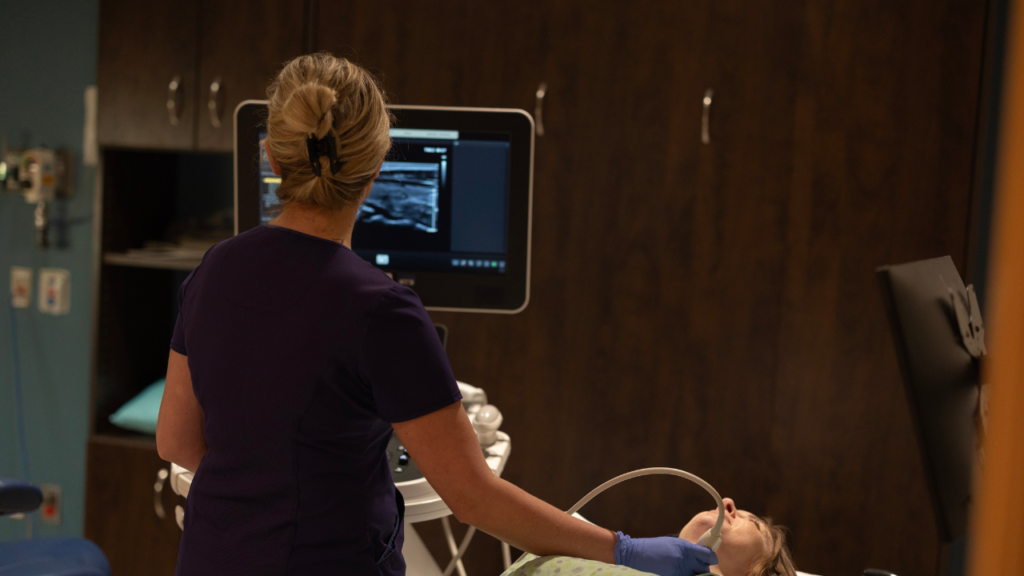
Ultrasound
Noninvasive Procedure
Ultrasound is a procedure that uses high-frequency sound waves to view internal organs and produce images of the human body. These sound waves cannot be heard by the human ear. An ultrasound procedure is noninvasive, meaning the exam does not penetrate the skin. CCMH’s department has sonographers trained to provide both general and vascular studies. Some common general studies include OB or prenatal exams, pelvic and abdominal studies and gall bladder exams. Vascular studies include arterial exams and echos.
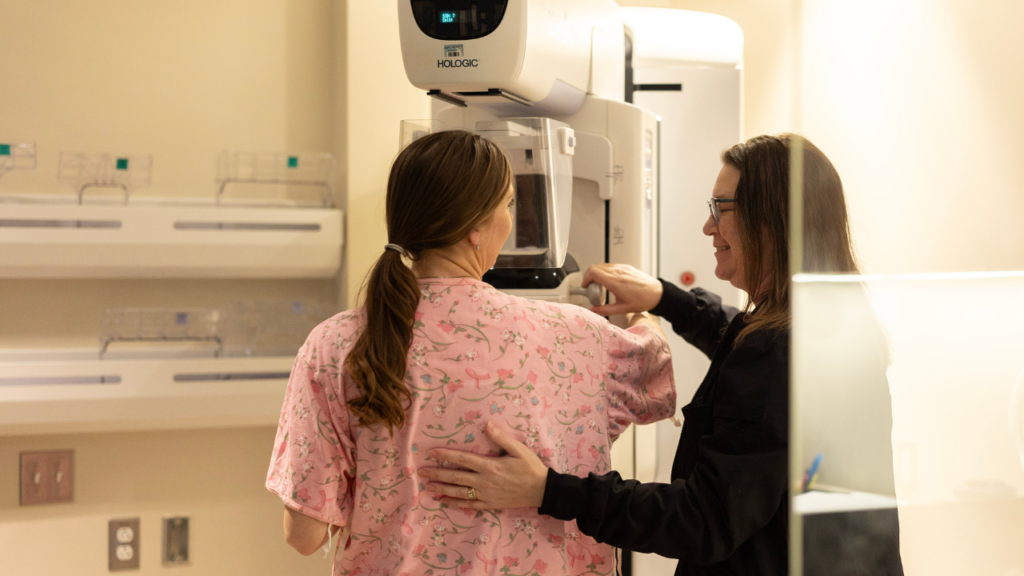
Mammography Services
Crawford County Memorial Hospital utilizes a 3D digital mammography system that is also capable of producing high resolution 2D images. The system is among the safest and most advanced screening tools available to identify cancers of the breast area early, when they are most treatable. This 3D mammography system at CCMH uses the lowest amounts of radiation needed to get high resolution diagnostic images.
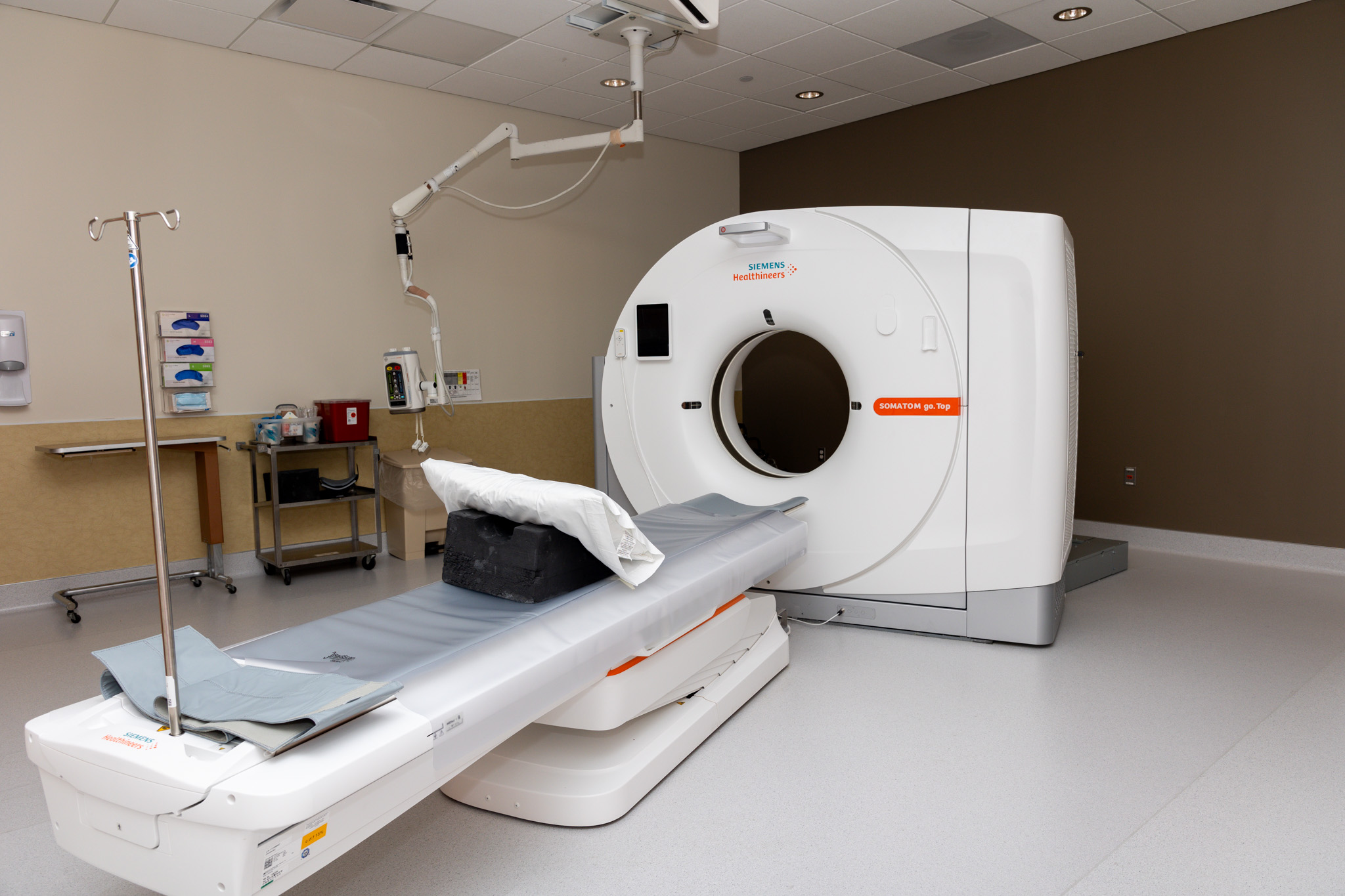
Computed Tomography
CT Scan
Computed tomography (CT) is a painless imaging procedure that uses advanced X-ray technology to capture detailed images of the body from multiple angles. These images are processed by a computer to create clear, cross-sectional views of soft tissue, bones, and blood vessels. Compared to standard X-rays, CT scans provide a higher level of detail, which can support earlier diagnosis and more effective treatment planning.
At CCMH, we use a high-performance 128-slice CT system to perform a wide range of imaging services, including general, cardiac, and arterial studies. In some cases, a contrast agent may be used to enhance image clarity and highlight specific areas of the body. When needed, contrast is typically administered through a quick IV injection at the start of the exam.
One advanced cardiac imaging option available through CT is heart calcium scoring (coronary calcium scan). This specialized, non-invasive scan detects calcium buildup in the arteries of the heart—an early indicator of coronary artery disease that can appear before symptoms develop. The exam produces a calcium score that helps providers better understand heart disease risk and support informed, preventive care decisions. Quick and painless, heart calcium scoring may be helpful for adults with certain risk factors or a family history of heart disease.
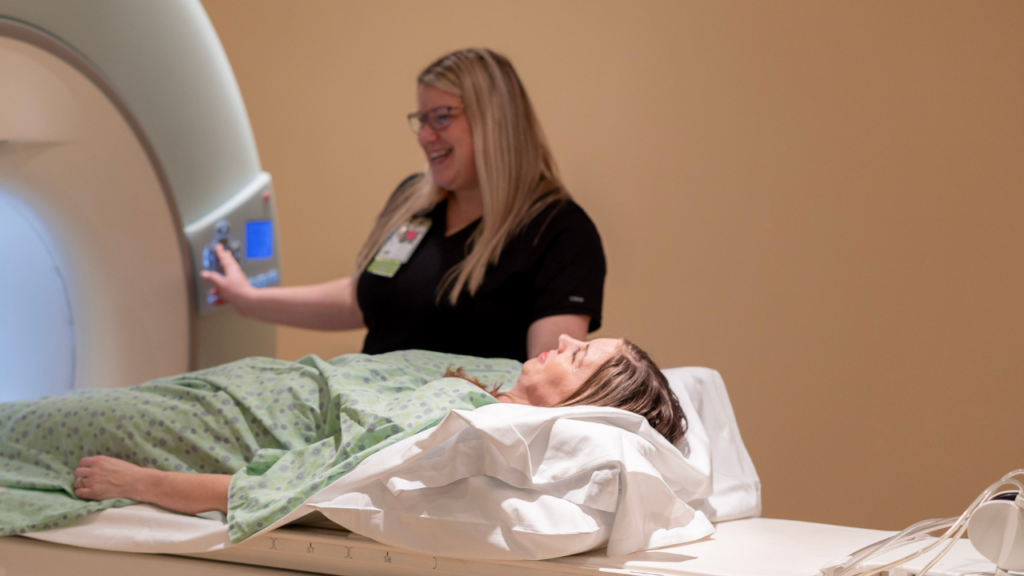
Magnetic Resonance Imaging
MRI
Magnetic Resonance Imaging, or MRI, is a painless and safe diagnostic procedure that uses a powerful magnet and radio waves to produce detailed images of the body’s organs and structures. This type of exam is done without the use of X-rays or other radiation. The images produced by MRI show the exact details of the inside of the body. CCMH utilizes a state-of-the-art, in-house, large bore MRI to provide exams Monday through Friday.
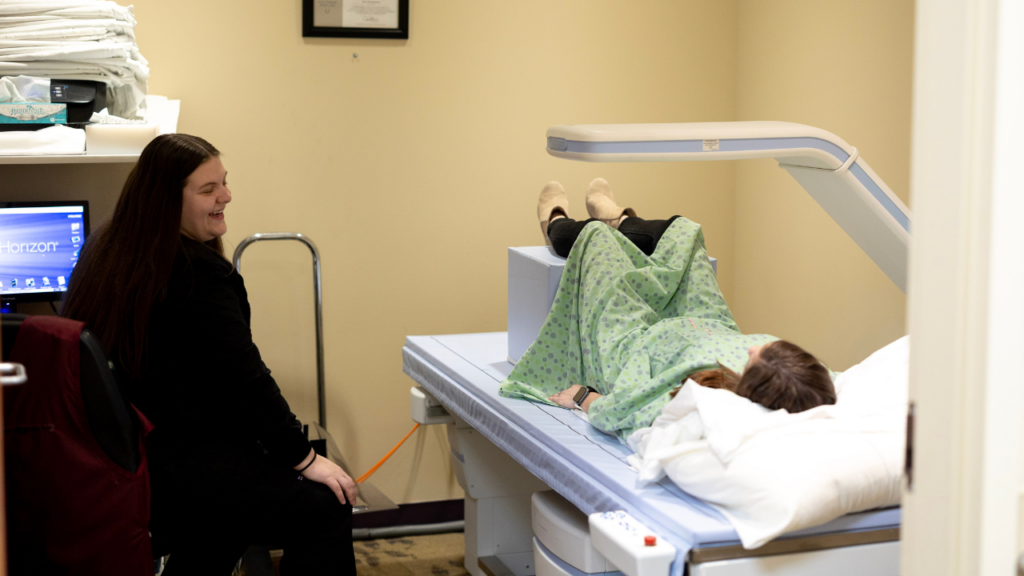
Bone Densitometry Tests
x-rays
CCMH offers bone densitometry tests through our own DEXA Scanner. Bone density scanning is a noninvasive form of x-ray technology that is used to measure bone loss, generally by examing the lower back or hip. This procedure is commonly used for the diagnosis of osteoporosis. The Radiology Department also has two dedicated digital radiography (x-ray) rooms. This technology means the hospital no longer uses film-based x-ray technology.